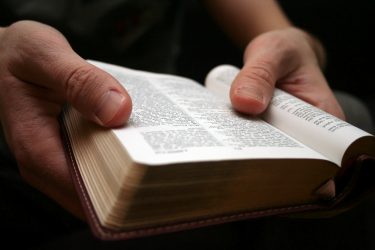Fasting was a common occurrence in the Old Testament and was implemented for many reasons. Surprisingly, fasting was only proclaimed once as an annual national observance in the Law of Moses. It was to be done on the Day of Atonement and it was to be done by ALL of Israel. This was a solemn ritual designed to bring the hearts and minds of God’s people to a place of sober gratitude as sacrifices were made to God on their behalf. In relation to the Law, fasting was a means of stopping all activity and refocusing all energy on the magnitude of God’s favor. Other Old Testament occurrences were related to grief, hope, discipline, and focus. Generally, it was an outward way to put outward experiences into a godly context.
In some cases, it was a sign of repentance for sins committed, for example: 1 Samuel 7:6, “And they gathered together to Mizpeh, and drew water, and poured it out before the LORD, and fasted on that day, and said there, We have sinned against the LORD. And Samuel judged the children of Israel in Mizpeh.”
In some cases, fasting was to ask God to do (or not do) something: 2 Samuel 12:22, “And he said, While the child was yet alive, I fasted and wept: for I said, Who can tell whether GOD will be gracious to me, that the child may live?” Ezra 8:23, “So we fasted and besought our God for this: and he was intreated of us.”
Sometimes fasting was done by an individual, and other times a group of people fasted that God might deliver them: 2 Samuel 12:16, “David therefore besought God for the child; and David fasted, and went in, and lay all night upon the earth.” Jonah 3:5, “So the people of Nineveh believed God, and proclaimed a fast, and put on sackcloth, from the greatest of them even to the least of them.”
As we open the New Testament, we find a very different approach to fasting when we look at it as followers of Christ. Jesus fasted for 40 days immediately after being baptized and receiving God’s spirit. His fast was not as a result of some outward experience happening around him. On the contrary, it was a result of his desire to focus himself entirely upon precisely accomplishing his Father’s will going forward as the Messiah.
Jesus taught his followers about fasting as a tool of Christianity in the Sermon on the Mount. His instruction was very personal. It was also very specific regarding the necessity to keep our times of fasting from becoming rituals for public observation. Interestingly, fasting does not play a major role in New Testament Christian writings, but there are several New Testament scriptures regarding fasting:
Matthew 6:16-18, “Moreover when ye fast, be not, as the hypocrites, of a sad countenance: for they disfigure their faces, that they may appear unto men to fast. Verily I say unto you, They have their reward. But thou, when thou fastest, anoint thine head, and wash thy face; That thou appear not unto men to fast, but unto thy Father which is in secret: and thy Father, which seeth in secret, shall reward thee openly.”
Acts 14:23, “And when they had ordained them elders in every church, and had prayed with fasting, they commended them to the Lord, on whom they believed.”
When a congregation is considering an important question or direction, such as the election of who will serve them and wishes the Lord’s will be done, it certainly is in alignment with Scripture for the brethren to fast to intreat Yahweh for His guidance and overruling; however, nowhere in the Bible are Christians told they are required to fast. Kings of old may have ordered others to fast, but in the church, declaring a fast for all members may interfere with the liberty we as brethren have in Christ. There is a difference between offering a suggestion that the brethren might fast and ‘declaring’ a fast for the congregation. In Christ, we each have a personal relationship with Yahweh. Fasting should be something that each child of God offers of their own free will, in secret.
Additional Resources:
Christian Questions Podcast
Episode #1333: “Should Christians Fast?”
The how, when and why of appropriate Christian fasting
Preview Video
CQ Rewind Show Notes
Episode #826: Why Focus on Fasting and Prayer?
The role of fasting (particularly) and praying in our lives
CQ Rewind Show Notes
Blog post: Is drinking water allowed during a Christian fast?









